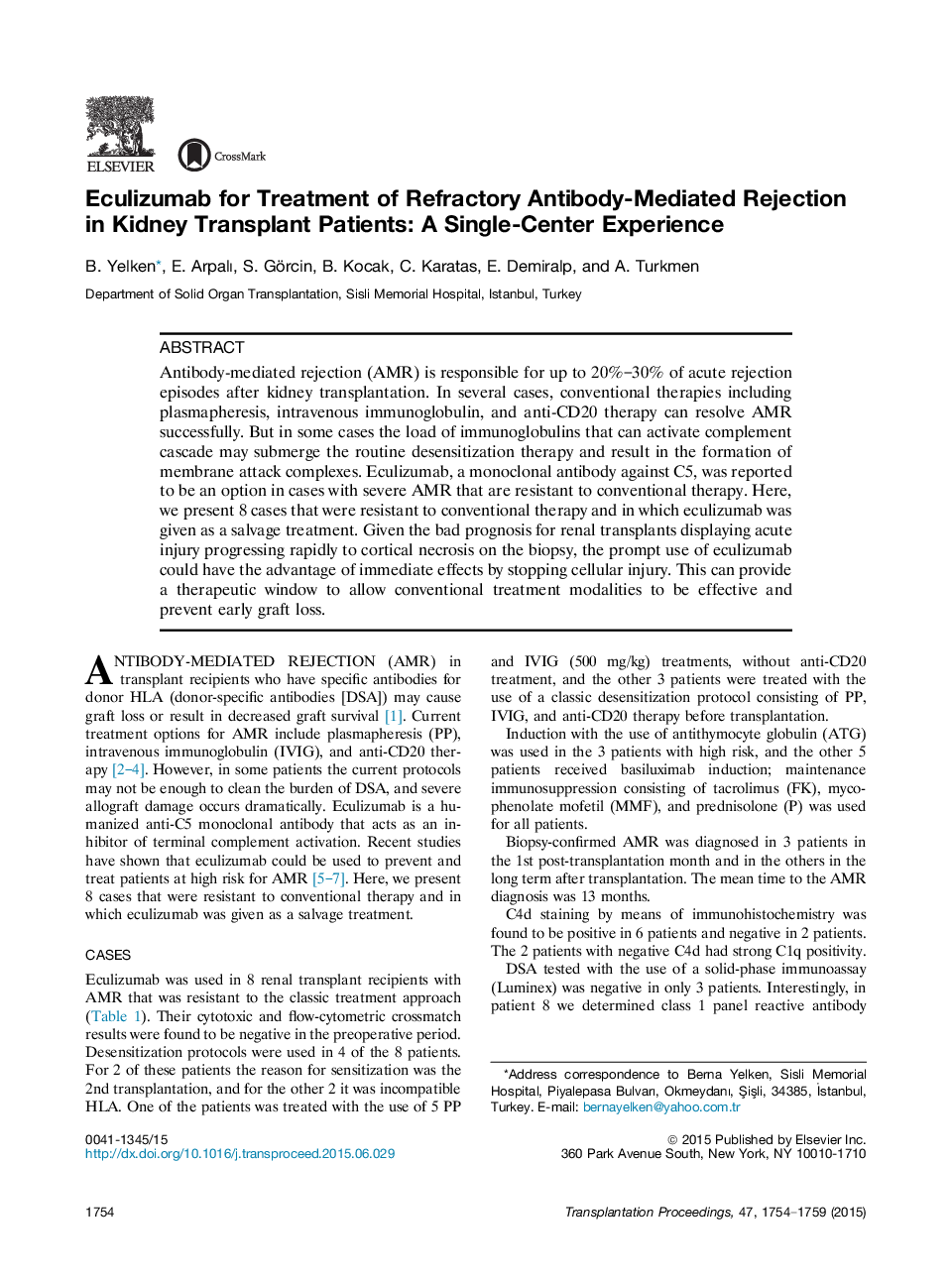| Article ID | Journal | Published Year | Pages | File Type |
|---|---|---|---|---|
| 6247167 | Transplantation Proceedings | 2015 | 6 Pages |
â¢We present 8 cases that were resistant to conventional therapy, in which eculizumab was given as a salvage treatment.â¢Eculizumab use in kidney transplantation has been reported in limited case reports as salvage therapy for severe acute antibody-mediated rejection.â¢Eculizumab treatment should be started without delay.
Antibody-mediated rejection (AMR) is responsible for up to 20%-30% of acute rejection episodes after kidney transplantation. In several cases, conventional therapies including plasmapheresis, intravenous immunoglobulin, and anti-CD20 therapy can resolve AMR successfully. But in some cases the load of immunoglobulins that can activate complement cascade may submerge the routine desensitization therapy and result in the formation of membrane attack complexes. Eculizumab, a monoclonal antibody against C5, was reported to be an option in cases with severe AMR that are resistant to conventional therapy. Here, we present 8 cases that were resistant to conventional therapy and in which eculizumab was given as a salvage treatment. Given the bad prognosis for renal transplants displaying acute injury progressing rapidly to cortical necrosis on the biopsy, the prompt use of eculizumab could have the advantage of immediate effects by stopping cellular injury. This can provide a therapeutic window to allow conventional treatment modalities to be effective and prevent early graft loss.
